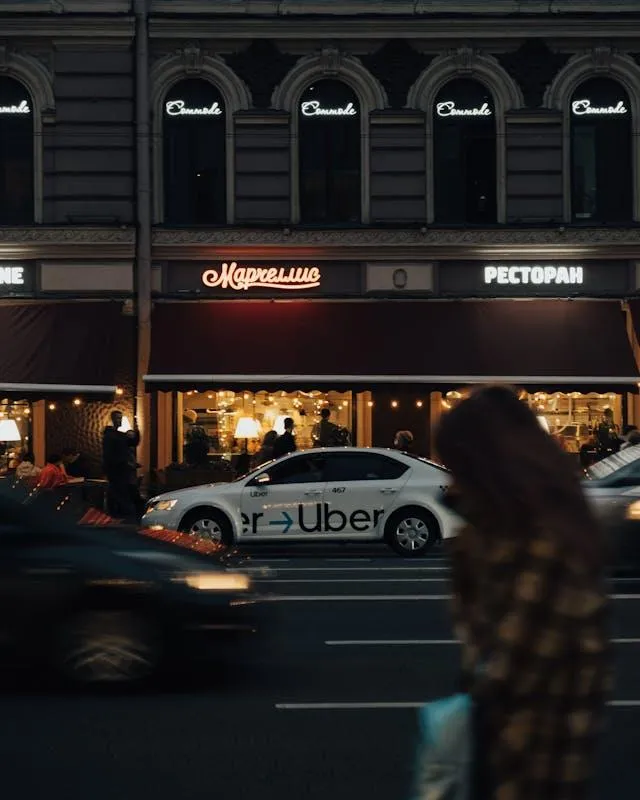
With the festive season approaching, the risks associated with e-hailing services like Uber and Bolt increase.
Image: Roberto Hund/Pexels
As the festive season approaches, so do heightened risks for e-hailing passengers and drivers.
While e-hailing rides offer South Africans convenience and a popular option for safe, hassle-free travel, an increase in crimes and accidents highlights the need for constant vigilance and preparedness during holiday travel.
Recent figures are concerning: crimes connected to e-hailing services have risen by 20%. In Gauteng, 13 driver murders were reported within two weeks this year.
Factors like late-night rides, trips after drinking, and tired drivers increase these risks. Safety must now be a primary concern.
However, it’s not just about statistics; it’s about people. Behind every incident is a real story of trauma, loss, and survival. And as South Africa continues to battle gender-based violence (GBV), the safety of both passengers and drivers, especially women, becomes even more urgent.
False sense of security
“E-hailing has become part of our social fabric, especially during the holidays,” says Kirstie Haslam, a partner at DSC Attorneys, Cape Town.
“But the convenience it offers has created a false sense of security. Many passengers believe they’re automatically safe because they’re using an app, but when something goes wrong, they don’t know their rights or how to respond.”
It’s a sobering reminder that while GPS tracking and emergency buttons are helpful, they’re not fail-proof. Knowing how to protect yourself, both legally and physically, is critical.
Accidents happen
Car accidents are a common risk, especially during the festive season when road traffic spikes. If your e-hailing ride is involved in a collision, what you do immediately afterwards can make all the difference.

If your e-hailing ride is involved in a collision, what you do immediately afterward can make all the difference.
Image: Vitaliy Mitrofanenko/Pexels
“Your safety is the priority,” advises Haslam, “but documenting the incident is crucial if you need to file a personal injury claim later.”
Here’s what to do:
Passengers injured in an accident may be eligible to claim from the Road Accident Fund (RAF) or the driver's insurance, especially if negligence, speeding, or an unroadworthy vehicle was involved.
When the ride turns dangerous
The rise in violent crimes involving e-hailing rides is alarming. From hijackings and assaults to harassment, the risks are real for both passengers and drivers.
“If you’re robbed or assaulted during your ride, report the incident to both the police and the e-hailing platform immediately,” says Haslam. Request a case number and save all communication with the app.”
Victims can often seek compensation if negligence is proven, such as when the platform fails to vet drivers with prior complaints or ignores safety protocols.
“We’ve seen cases where victims were left traumatised and financially burdened,” Haslam adds. “Platforms have a duty of care, and when that fails, the law can hold them accountable.”

E-hailing has become part of our social fabric, especially during the holidays
Image: Athena Sandrini /Pexels
Five festive safety tips for e-hailing riders
The e-hailing industry reflects broader societal issues, including the alarming prevalence of gender-based violence. Studies show that 43% of female e-hailing drivers in South Africa have experienced sexual harassment on the job, and many women passengers report feeling unsafe, particularly during late-night rides.
By promoting vigilance and accountability within e-hailing platforms, we also take a step toward combating GBV.
Safety features like live trip sharing and emergency hotlines are valuable, but they must be backed by swift, reliable responses when incidents occur.
The e-hailing industry must do more to protect its users. Improved driver vetting, better safety training, and faster response times are essential. But as passengers, we also have a role to play.
“Technology can help, but it’s not a shield,” says Haslam. “Increased festive travel, late-night rides, and alcohol consumption all heighten risks. The best protection is vigilance and knowing your rights.”
Last festive season, South Africa recorded over 1 500 road deaths and more than 7 400 arrests for drunk driving and other offences. These grim statistics are a wake-up call. Whether you’re behind the wheel or in the back seat, your safety starts with awareness.
Related Topics: